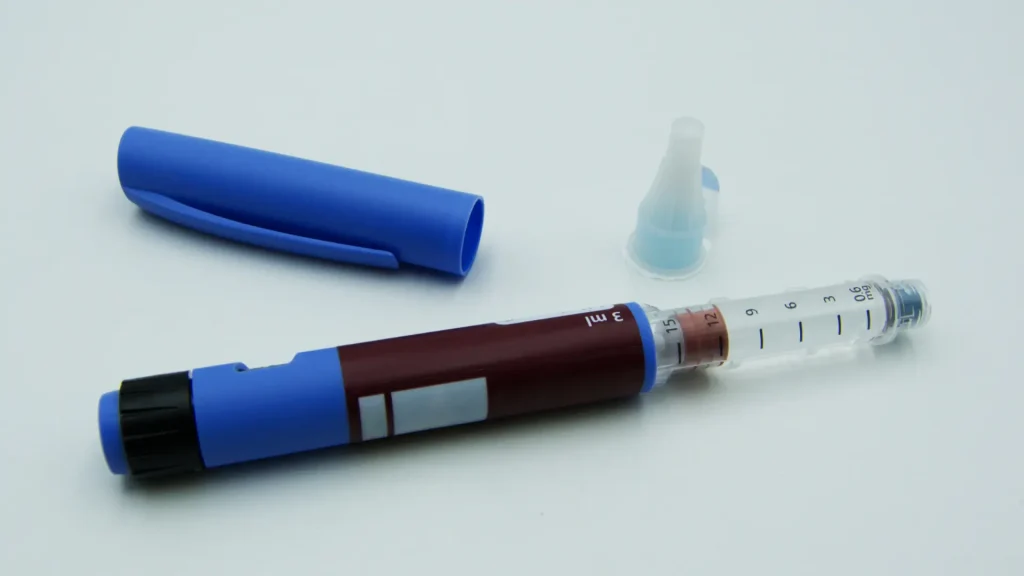Biologic therapies have revolutionized the treatment of complex diseases, providing targeted solutions that can manage conditions like cancer, autoimmune disorders, and diabetes. According to the World Health Organization, biologics offer significant improvements in efficacy, safety, and patient convenience compared to traditional treatments, although accessibility remains a challenge in many parts of the world.
Actemra (tocilizumab) is one such biologic therapy that has gained widespread use for treating immune-mediated conditions. As a monoclonal antibody, it specifically targets and inhibits interleukin-6 (IL-6), a critical mediator of inflammation. This mechanism of action allows Actemra to effectively manage diseases such as rheumatoid arthritis and cytokine release syndrome.
In this article, we will explore what is Actemra, Actemra’s classification as a biologic, how it works, and its growing role in modern therapeutic interventions for immune-related conditions.
Key Takeaways
- Actemra (tocilizumab) is a biologic therapy that targets interleukin-6 (IL-6) receptors to reduce inflammation. This makes it effective for treating autoimmune diseases like rheumatoid arthritis, giant cell arteritis, and cytokine release syndrome.
- The dosing is tailored to each patient’s weight and clinical response, with different dosing regimens for intravenous (IV) and subcutaneous (SC) formulations. IV infusions typically range from 4 to 8 mg/kg every four weeks. While SC injections are administered at a fixed dose of 162 mg weekly or biweekly.
- The SC administration option provides greater convenience for patients, especially those seeking self-injection, while the IV infusion is preferred for more immediate results and close monitoring.
- Regular clinical monitoring and laboratory tests are essential to track the effectiveness of the treatment and adjust dosing when needed. This includes assessing liver function, neutrophil counts, and other health markers to ensure safety.
- Actemra (tocilizumab) has proven to be highly effective for autoimmune disorders, with the FDA approval covering a broad range of conditions. However, proper patient selection and adherence to prescribed dosing schedules are crucial for optimal therapeutic outcomes.
- Compared to other biologics, Actemra has a lower risk of inducing anti-drug antibodies, which helps sustain its efficacy over long-term use, making it a reliable treatment option for chronic inflammatory conditions.
About: Medica Depot is your trusted all-in-one supplier, offering a range of high-quality medical injectables and supplies. Buy Actemra (tocilizumab) at Medica Depot today! Whether for health professionals, plastic surgeons, dermatologists, licensed estheticians, or other specialists, we can offer genuine, brand-name products you may need. With Medica Depot, we prioritize serving you better to improve the patient’s quality of life.
Mechanism of Action of Actemra

As a prescription medication for various medical conditions, understanding how Actemra treatment works is essential for healthcare providers. As an interleukin-6 (IL-6) receptor antagonist, Actemra targets IL-6, a pro-inflammatory cytokine that drives immune-mediated disorders. By binding selectively to both soluble and membrane-bound IL-6 receptors, Actemra effectively blocks IL-6 from triggering its inflammatory cascade. This inhibition disrupts the JAK/STAT signaling pathway, which is pivotal in cytokine release and activation of immune cells.
By preventing IL-6 receptor activation, Actemra (tocilizumab) significantly reduces inflammatory responses and halts the overactivation of the immune system. This approach not only helps alleviate symptoms but also prevents further tissue damage, particularly in diseases like rheumatoid arthritis, giant cell arteritis, and cytokine release syndrome.
As a result, Actemra becomes a powerful tool in treating autoimmune diseases, improving joint mobility, and enhancing overall quality of life. This targeted action ensures that both adult patients and pediatric patients benefit from a precise therapeutic intervention, rather than experiencing widespread side effects typically associated with conventional treatments.
Tocilizumab Indications for Actemra Use

The prescribing information of Actemra, approved by the US Food and Drug Administration (FDA), includes a variety of autoimmune and inflammatory conditions. By targeting interleukin-6 receptors, Actemra effectively reduces inflammation, making it suitable for managing conditions such as:
- Rheumatoid Arthritis (RA) in adult patients
- Giant Cell Arteritis (GCA)
- Polyarticular Juvenile Idiopathic Arthritis (PJIA) for pediatric patients
- Systemic Juvenile Idiopathic Arthritis (SJIA)
- Cytokine Release Syndrome (CRS)
- Systemic Sclerosis–Associated Interstitial Lung Disease (SSc-ILD)
Actemra’s ability to provide effective immunomodulation has led to its approval for these various inflammatory disorders, and Actemra dosing is tailored to each condition for optimal therapeutic outcomes.
Actemra has also been evaluated in acute care. A trial in hospitalized COVID-19 patients showed a reduction in mortality risk, highlighting the medication’s potential beyond chronic arthritis care. Its expanding clinical role underscores the importance of following the medication guide and consulting a healthcare provider before starting therapy.
Administration Routes and Formulations of Actemra

Actemra’s administration routes are tailored to patient needs, with the option of intravenous (IV) and subcutaneous (SC) formulations. These routes provide flexibility in how Actemra can be delivered based on disease severity, treatment goals, and patient preferences.
- IV Infusion: Actemra’s IV formulation uses a weight-based dosing strategy and is typically administered as a 60-minute infusion in a hospital or infusion center. Adult patients receive doses ranging from 4 to 8 mg/kg every four weeks, with adjustments based on clinical response.
- SC Injection: The SC formulation comes in prefilled syringes or autoinjectors. Clinicians administer it weekly or every other week at a fixed dose of 162 mg. They adjust the dosing frequency and dosage based on the patient’s weight and clinical needs.
Choosing between IV and SC administration depends on several key factors, including disease severity, patient lifestyle, and treatment adherence. A healthcare provider may prefer IV administration for a quick onset and close monitoring. In contrast, they may recommend SC injection for its greater convenience and flexibility, especially for patients who prefer to self-administer the medication at home.
Comparing Actemra with Other Biologic Therapies
Before starting any treatment, patients must always seek the guidance and expertise of medical Actemra (tocilizumab) belongs to a family of biologic therapies targeting cytokine activity to treat autoimmune diseases. Comparing Actemra vs other biologic therapies like TNF inhibitors, abatacept, and rituximab can help patients and healthcare providers make informed decisions.
While TNF inhibitors target TNF-alpha, a key inflammatory mediator, Actemra works specifically by inhibiting IL-6. It plays a central role in many immune-mediated diseases. This mechanism of action makes Actemra a suitable option for conditions characterized by elevated IL-6 levels. Moreover, Actemra has a lower risk of anti-drug antibody formation, helping to sustain its therapeutic efficacy over time, compared to TNF inhibitors.
Additionally, Actemra is available in SC formulations, which offers convenience for outpatient management, whereas other biologic therapies may require hospital-based administration. Actemra is an important treatment option for conditions like rheumatoid arthritis, giant cell arteritis, and cytokine release syndrome, with FDA approval spanning a wide range of autoimmune diseases.
Conclusion
Actemra (tocilizumab) has emerged as a leading biologic therapy for managing a wide array of autoimmune diseases and inflammatory conditions. By targeting the IL-6 receptor, Actemra effectively reduces inflammation and modulates the immune system, improving patient quality of life. Its FDA-approved uses highlight its versatility in treating rheumatoid arthritis, cytokine release syndrome, and other complex disorders.
With its tailored dosing approach and diverse administration options, Actemra offers a personalized treatment plan for patients with specific therapeutic needs. Proper dosing, based on patient weight and clinical response, ensures optimal results while minimizing risks. As research progresses, Actemra’s broader applications continue to be explored, solidifying its role in modern therapeutic interventions.
FAQs
1. What is Actemra, and how does it work?
Actemra (tocilizumab) is a biologic medication that inhibits interleukin-6 (IL-6), a protein involved in inflammation. Blocking IL-6 receptors helps reduce inflammatory responses in various autoimmune conditions, improving symptoms and joint mobility.
2. What conditions has the FDA approved Actemra to treat?
The FDA has approved Actemra (tocilizumab) for several conditions, including rheumatoid arthritis, giant cell arteritis, polyarticular and systemic juvenile idiopathic arthritis, and cytokine release syndrome, among others.
3. How should a healthcare provider administer Actemra?
Medical professionals can give Actemra through intravenous (IV) or subcutaneous (SC) injection. The IV option typically uses a weight-based dosing strategy. While the SC formulation has fixed doses usually administered weekly or biweekly, depending on the patient’s needs.
References
- World Health Organization. Biosimilars: expanding access to essential biologic therapies. Who.int. Published February 13, 2025. https://www.who.int/news/item/13-02-2025-biosimilars–expanding-access-to-essential-biologic-therapies
- Efficacy Data for COVID-19 | ACTEMRA® (tocilizumab). www.actemrahcp.com. Accessed May 15, 2025. https://www.actemrahcp.com/coronavirus/efficacy.html









